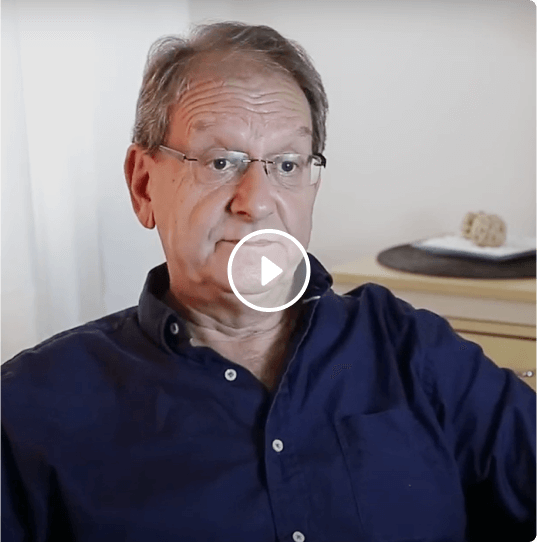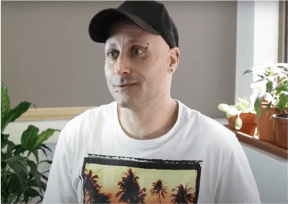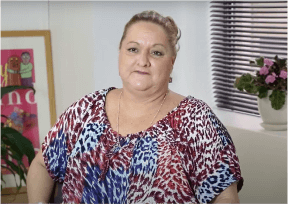What is anxiety?
Anxiety is a natural and normal reaction everyone experiences from time to time. People feel anxiety in situations that they think are threatening or dangerous in some way. Sometimes anxiety, when not too intense, can be helpful, such as when trying to cross a very busy road or doing something risky. Anxiety affects a person’s thoughts, feelings in the body, and behaviour or actions.
When anxiety becomes a problem?
This website will help you recognise the signs and symptoms of the different types of anxiety disorders,
including anxiety in children, and help you get the treatment you need to manage it effectively.
Our detailed anxiety symptoms checklist highlights the common types of anxiety disorders, and helps you be aware of the signs. It will not, however, provide a diagnosis – only your GP or healthcare professional can do that.
The checklist will tell you if you have symptoms in common with people who have an anxiety disorder.
Importantly you will learn that having an anxiety disorder isn’t a life sentence.
Anxiety disorders are among the most treatable and manageable of all mental health problems. With the right support, you can learn to manage your anxiety and stop it taking over your life.
How common are anxiety disorders?
Anxiety disorders affect 1 in 7 people in Australia, making them even more common than depression.
Anxiety is a normal and natural response that occurs when a person feels threatened or is worried that something bad or unpleasant might happen. Signs of anxiety can occur in children as well.
Whether you or someone you know is experiencing symptoms of anxiety, it’s important to note if these signs become constant, severe, or start to affect your life, it could be worth seeking help from a GP or healthcare professional.
Wayahead Anxiety Disorders
Information Line
1300 794 992
Available Monday to Friday 9am to 5pm
Types of anxiety
There are several types of anxiety disorders. Some people just have symptoms of one type, while others have a mixture of symptoms.
People with GAD experience excessive and uncontrollable worry about everyday things, these concerns can change on a day to day basis.
Symptoms include:
- feeling very worried and finding it hard to stop worrying.
- having difficulty carrying out everyday activities.
- feeling restless or on edge.
- feeling tired easily.
- having difficulty concentrating.
- feeling irritable.
- muscle pain.
- trouble sleeping – difficulties falling asleep, staying asleep, waking up unsatisfied after sleep
GAD symptoms checklist
For SIX MONTHS or more on more days than not, have you:
- felt very worried
- found it hard to stop worrying
- found that your anxiety made it difficult for you to do everyday activities (e.g. work, study, seeing friends and family)?
If you answered ‘YES’ to ALL of these questions have you also experienced THREE or more of the following:
- felt easily tired
- had difficulty concentrating
- felt irritable
- felt restless or on edge
- had muscle pain (e.g. sore jaw or back)
- had trouble sleeping (e.g. difficulty falling or staying asleep or restless sleep)?
If you answered ‘YES’ it is important to see a doctor
OCD occurs when people have ongoing, unwanted/intrusive thoughts and fears that cause anxiety – often called obsessions. These make people feel the need to carry out certain rituals in order to feel less anxious (known as compulsions).
Symptoms include:
- repetitive thoughts or concerns that are not about real life problems (thoughts are usually alien to the individual’s belief system)
- performing the same activity repeatedly and in a very ordered, precise and similar way each time.
- feeling relieved in the short term by doing these things, but soon feeling the need to repeat them.
- recognising that these feelings, thoughts and behaviour patterns are unreasonable, that they take up more than 1 hour a day and/or interfere with the person’s normal routine.
OCD symptoms checklist
Have you:
- done the same activity repeatedly and in a very ordered, precise and similar way each time e.g.:
– constantly washing your hands or clothes, showering or brushing your teeth
– constantly cleaning, tidying or rearranging in a particular way things at home, at work or in the car
– constantly checking that doors and windows are locked and/or appliances are turned off - had repetitive thoughts or concerns that are not simply about real life problems (e.g. thoughts that you or people close to you will be harmed)
- felt relieved in the short term by doing these things, but soon felt the need to repeat them
- recognised that these feelings, thoughts and behaviours were unreasonable
- found that these thoughts or behaviours take up more than 1 hour a day and/or interfered with your normal routine (e.g. working, studying or seeing friends and family)?
If you answered ‘YES’ it is important to see a doctor.
A panic attack is characterised by; sudden episodes of intense fear that seems to come without any apparent cause. Intense panic usually last a few minutes but sometimes it could return in waves for up to two hours. During a panic attack people experience intense feelings of anxiety that seem like they cannot be brought under control.
The surge of fear reaches a peak within minutes during which time people experience four or more of the following:
- sweating
- increased heart rate.
- shortness of breath.
- A feeling of chocking.
- nauseous or pain in the stomach.
- dizzy, lightheaded or faint.
- Numbness or tingling.
- detached from themselves or their surroundings.
- hot or cold flushes.
- afraid of going crazy.
- afraid of dying.
- felt scared for one month or more of experiencing these feelings again.
Agoraphobia is an anxiety disorder that occurs when people have a fear of having a panic attack and start to avoid situations where they think they might have a panic attack. People with Agoraphobia often experience two or more of the following symptoms:
- Avoiding public transport
- Avoiding tunnels, bridges, shopping centres, lifts, cinemas
- Avoiding standing in a line or being in crowds
- Being alone at home or unable to leave home
Individuals experiencing Agoraphobia often fear that being in these situations might be difficult to escape or that help might be hard to arrive if they need it.
Phobias involve being fearful of a specific object or situation (e.g. flying, speaking at a social event, going near certain animals).
This can lead to a person avoiding an object or situation that might cause the person to face the phobia (e.g. changing work patterns, not attending social appointments or not getting health check-ups).
Exposure to the feared object or situation could result in panic reaction. In such situations, the fear and avoidance could interfere with the person’s everyday life and could cause considerable distress and anxiety.
See below for Social Phobia and Specific Phobias.
Phobias checklist
Have you felt very nervous when faced with a specific object or situation e.g.:
- flying on an aeroplane
- going near an animal
- receiving an injection
- going to a social event?
Have you avoided a situation that might cause you to face the phobia e.g.:
- needed to change work patterns
- not attending social events
- not getting health check-ups
- found it hard to go about your daily life (e.g. working, studying or seeing friends and family) because you are trying to avoid such situations?
If you answered ‘YES’ it is important to see a doctor
It’s important to note that some people who have symptoms of anxiety disorder can also experience symptoms of other disorders too. If the symptoms of anxiety are left untreated, they can start to take over the person’s life. Not only can it affect the person with the disorder, but it can also start to affect relationships with family and friends. For example, untreated anxiety disorders can lead to:
- marriage and family problems
- financial problems
- difficulty finding and holding down a job
- drug and alcohol abuse
- a person losing their temper too easily
- suicide
PTSD involves experiencing anxiety after a highly stressful event, i.e. a trauma, experienced or witness violence or violent episode that involved death, injury, torture or abuse and felt very frightened or helpless.
Other common PTSD symptoms are:
- upsetting memories or nightmares of the event for at least a month.
- find it hard to go about daily life.
- avoid activities that are a reminder of the event.
- feel less interested in doing things they used to enjoy.
- had trouble feeling intensely positive emotions.
- thought less about the future.
- difficulty sleeping.
- become angry or irritated easily.
- trouble concentrating.
- feel on guard.
- easily startled.
* NOTE: it should be noted that not all people experiencing traumatic events develop PTSD.
PTSD Symptoms Checklist
Have you:
- experienced or seen something that involved death, injury, torture or abuse and felt very scared or helpless
- had upsetting memories or dreams of the event for at least ONE month?
- found it hard to go about your daily life (e.g. made it difficult for you to work/study or get along with family and friends)?
If you answered ‘YES’ to ALL of these questions, have you also experienced at least THREE of the following:
- avoided activities that remind you of the event
- had trouble remembering parts of the event
- felt less interested in doing things you used to enjoy
- had trouble feeling intensely positive emotions (e.g. love or excitement)
- thought less about the future (e.g. about career or family goals)?
AND have you experienced at least TWO of the following:
- had difficulties sleeping (e.g. had nightmares, or found it hard to fall or stay asleep)
- felt easily angry or irritated
- had trouble concentrating
- felt on guard
- been easily startled?
If you answered ‘YES’, it is important to see a doctor.
Those who suffer from Social Phobia have a fear of being the centre of attention in case of embarrassment or being judged negatively. They avoid social situations, or tolerate them with difficulty. People with Social Phobia also often worry about upcoming social events, and then afterwards worry about how others might have judged them.
The most common social phobia involves public speaking some other common symptoms are:
- Fear of blushing
- Fear of crowds
- Fear of being watched
- Fear of public toilets
- Fear of writing or eating in front of others
People can also have a strong fear about specific things, object or situation. Although many of us will dislike or avoid some things from time to time, people with a Specific Phobia avoid situations that might cause them to face the feared object, and consequently find their life is significantly affected by their phobia.
Some avoided situations include:
- Fear of blood, needles
- Fear of snakes, spiders, birds, dogs
- Fears of heights, tunnels, bridges, lifts, flying
QUIZ
How are you ?
Take our wellbeing quiz to check and see how you are doing. It will only take a minute and could offer valuable insights into your wellbeing
Newsletter
Stay up to date
Sign up to our Mind Reader newsletter for monthly mental health news, information and updates.




